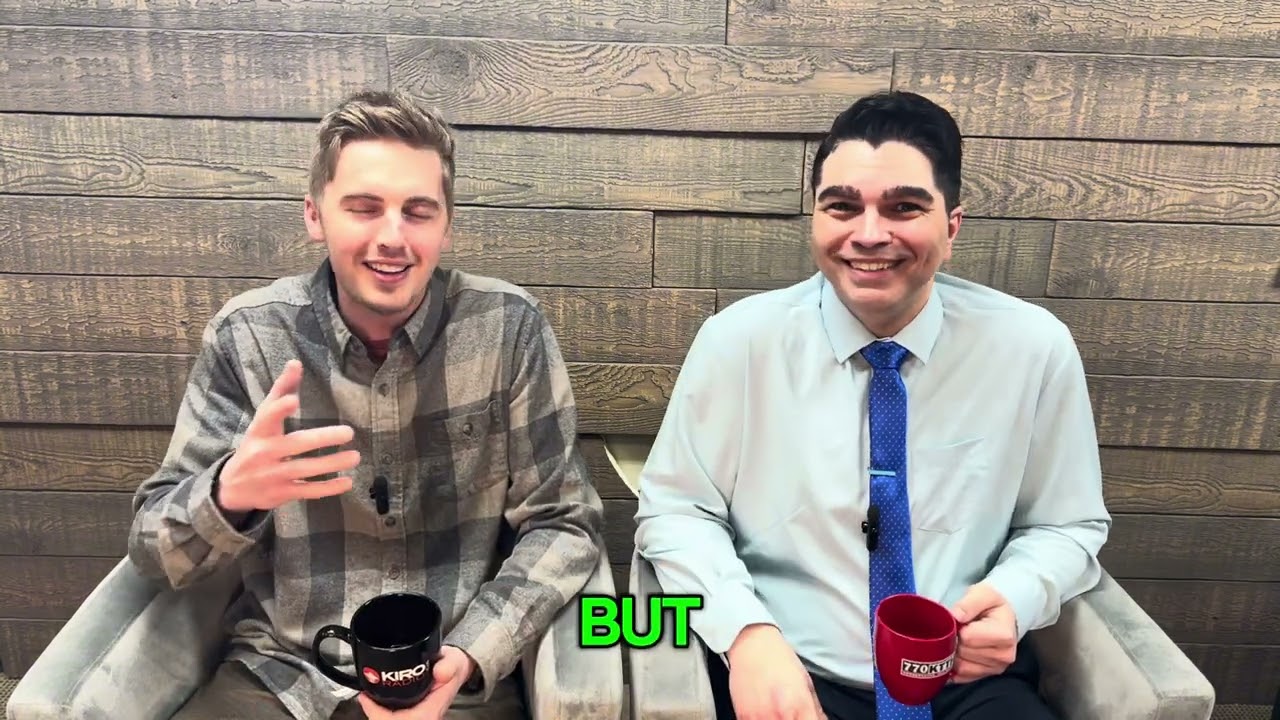UW economist says businesses must adapt to survive the new normal
May 22, 2020, 3:39 PM

Elizabeth Ramirez, an employee at the Woolly Mammoth shoe store in Seattle, takes photos of shoes as the owners scrambled to take their business online when the stay-at-home order was announced. (Photo by Karen Ducey/Getty Images)
(Photo by Karen Ducey/Getty Images)
Locally and nationally, many two income households have turned into zero income households during the COVID-19 crisis. While this is tragic and troublesome for the individuals, it also creates a ripple effect through the entire economy.
“This is really problematic because you have to think these are people who now are struggling to figure out how they’re going to pay their rent, struggling to figure out how they’re going to put food on the table,” Jeff Shulman, economist and professor at the UW Foster School of Business, told KIRO Nights.
When one person loses their job, that’s traumatic, Shulman added, but hopefully a spouse is still able to pick up the slack even if the family has to tighten their belts for a while.
“But here, they have to cut spending and dip right into savings,” Shulman said about a no-income household. “And this … doesn’t just affect the people who are unemployed, but where they were previously spending their money, these are now companies who aren’t going to get that discretionary spending.”
Belltown’s Some Random Bar lost money staying open, but is hopeful for May
Shulman described the effect of the pandemic on the local and state economy as a wave.
“The first wave crashed on our shores pretty suddenly and dramatically back in March, with the stay-at-home orders in the early response to the pandemic,” he said.
Arts organizations, small businesses, hourly employees, the hospitality industry, the travel industry were all took a beating.
“But now, this is not over, and it’s not going to be over even when the stay at home orders are lifted,” Shulman said. “We just can’t underestimate, … we had thousands upon thousands of very highly paid tech workers coming to the center of Seattle five days a week or more, coming to work. And they’re staying at home until the end of the year and maybe forever.”
Those companies and their employees supported the small businesses, the retail, the arts, which all feeds into the economy as a whole.
“This is pretty painful for a lot of our community members,” Shulman added.
Shulman says being comfortable in large groups again is, unfortunately, going to be key to getting the economy back up and running. He also said businesses need to be creative and adapt if they’re going to survive in the new normal post-COVID.
“Although we’re in a very traumatic time, it’s a whole kind of reset,” he said. “Everybody’s needs — companies needs and consumer needs — have changed dramatically. And so businesses that could adapt to that will be able to thrive, and then be able to bring back those employees and start to chip away at those unemployment numbers.”
Shulman says staying the same just isn’t an option.
“For a business to continue in this new normal, they have to adapt with other companies and businesses, and individuals, consumers,” he added.
While the pandemic has caused uncertainty and economic downturn, Shulman says there is also an opportunity for creativity.
“This is a time of remarkable opportunity,” he said. “Just think about how settled people and businesses are into habit, and right now all those habits are flipped on their head and they’re upended here. And so there is opportunity to serve these new needs, whether it’s new needs because of the economic trauma, or the new needs because of feeling unsafe, or the new needs because you’re still staying indoors, or you’re ready to venture outdoors.”
More Washington casinos resume operations with safety measures in place
He believes Seattle will play a major role in thinking through innovations for the new normal and adapting to the world ahead.
“I would bet on the people of Seattle to be the ones that satisfy these new needs, not just for our city and not just for our region, but these new needs that are being experienced around the world,” Shulman said.
Listen to KIRO Nights weeknights from 7 – 10 p.m. on KIRO Radio, 97.3 FM. Subscribe to the podcast here.













